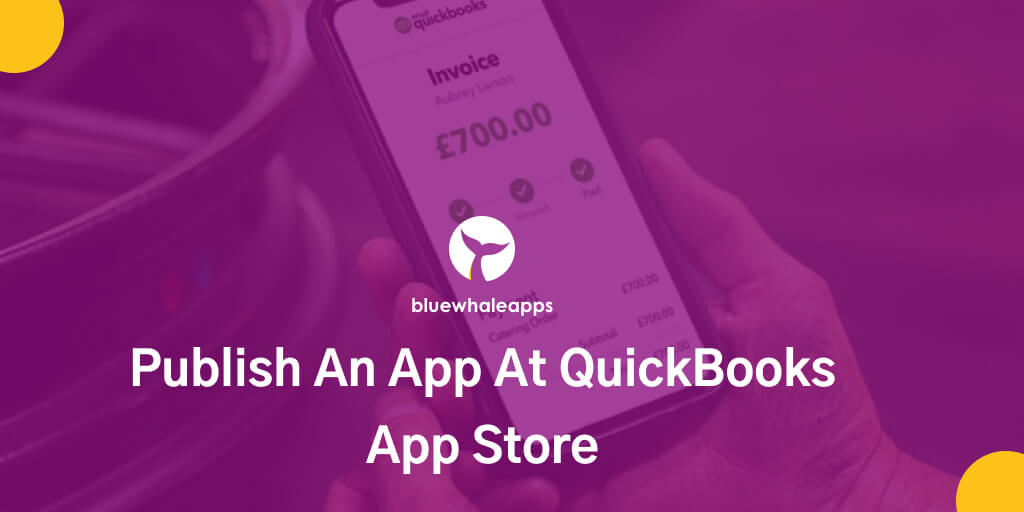Why Build An App Integration?
If you are an app owner there will come a point in your development where you should start to think about integrating with other applications. Because business users now expect any new app to play well with the other mission-critical apps in their business. And it is now normal to see a new app in the market with a constellation of integrations to choose from. This is great for the user because it often helps with onboarding a new service if it has immediate access to existing data but one of the biggest benefits for the app owner is that it introduces your app to all of the millions of customers of the app you are integrating with. This is a kind of soft recommendation from a major brand if you are in their app store. But with so many apps on the market, where do you start?
Why QuickBooks App integrations?
A QuickBooks app integration is a great place to start your new portfolio of third-party app integrations. If you are looking for an app that spans all business types and sizes general accounting software is a good place to start because every business needs it. QuickBooks is one of the top 3 products on the market for small businesses along with Sage, and the new kid on the block, Xero. QuickBooks have been around for nearly 40 years and Sage Group for 41 years, they were both originally Windows-installed applications but as with most business software are now available in a cloud edition. QuickBooks commands 25% of the UK market and 53% in the US. In this article, we will discuss some of the things to look out for when developing a QuickBooks app integration for the QuickBooks app store.
What QuickBooks App Consulting Services Do We Offer?
Here at Blue Whale apps, we offer a QuickBooks app consulting service where we offer our experience in developing QuickBooks app integrations and many other integrations. We can help you analyze your requirements, and plan a solution, and then our QuickBooks app developers can execute a completely delivered solution. You may also want us to help you formulate a strategy for your entire integration ecosystem.
Even if you have an in-house app development team, integrations require a somewhat different approach and skillset and as you will see below, every integration comes with it a whole range of complications that makes it often more economical to contract out to specialist QuickBooks app developers rather than trying to do it in-house.
What are the challenges you should expect when building a QuickBooks app integration?
First, you will need to sign up for a developer account, that is the easy part and you will find that you will be able to quickly get started developing your integration. QuickBooks offers a range of APIs that you can use with the main one being “QuickBooks online accounting API”
This API will give your app access to the main account data for customers and vendors, inventory, and invoicing. So can be used to sync customer or supplier information with other applications or for automatically generating an invoice for an in-app purchase, these are just two of the most commonly used functions, there are many others.
Applying for QuickBooks Production Keys
Before you will be able to publish any apps on the store, you will need to apply for a product key. You will need to pass Intuits vetting process to ensure that your business and your app are suitable to be listed in their store. Blue Wale’s QuickBooks consulting service also includes helping your business correctly compile and present your information to Intuit, so that you have the best chance of being accepted for inclusion in their app store. This is where our long experience with these kinds of applications can give us a distinct advantage. We are fully up to date with the most recent compliance criteria that were introduced in 2021.
QuickBooks App Integrations Data Structure
Locations and Classes
When developing QuickBooks app integrations you should be mindful that the data is structured differently from Xero and sage. QuickBooks uses two different categories for income and expenses, locations and classes can be used to separate income or expenses in different stores, buildings, or branches, and other categories that you want to track separately.
Banks Accounts and Credit Cards
Many accounting packages don’t differentiate between credit cards and bank accounts, but in QuickBooks, they are different depending on their current balance. For example, a balanced credit card is regarded as an asset compared to one that has a debit balance, which is not. This kind of detail can easily be overlooked when integrating with multiple accounting applications but if not deployed correctly can cause inconsistencies in the functionality of the integration.
API Support for Multiple Regions is Handled Differently
When developing for multiple regions there is API support for each region but each needs to be addressed and developed in its own right because some are handled differently from others. This is less a problem with the QuickBooks design, which is very thorough, but more a case of needing to accommodate different accounting laws in each country. The result of this is each region needs to be tested separately with the provided sandbox data to ensure that it is functioning the way that it should.
US Tax is Different in Each State
This is a well-known problem that needs to be kept in mind when developing for use in the united states. If the business has ‘automated sale tax’ checked QuickBooks will automatically calculate the tax due for each sale based on the buyer’s location. So if this is not accounted for in the integration development it can cause calculation errors or even program errors.
Quirky Program Errors
It should be noted that QuickBooks online APIs can return 401 errors that are not real. Normally this error would indicate a disconnect from the data source, but with QuickBooks APIs, this can be caused by a rate limit being exceeded. So your developers need to build into the code safeguards against this kind of error to avoid crashes and error messages in the final product.
Summary
The kinds of peculiarities that we discuss here are just some examples of what, not just QuickBooks app developers need to be prepared for, this is commonplace for many app integration projects. This is why it may well be worth contracting out some of your more complex integration projects even if you have an in-house team of developers. In many cases, the time taken to resolve one-off complications associated with one integration is just not worth it for an in-house team.
How We Can Help?
Here at Blue Whale apps, we offer the benefit of experience, we are professional QuickBooks app developers who have already experienced and resolved the many complications involved in a QuickBooks app integration project. Our QuickBooks app consulting services ensure that every detail of your project is properly planned and implemented by our development team. So your integration is delivered without fuss, on time, and within budget.
To discuss your QuickBooks app integration project in more detail with our experts please book a free consultation.






